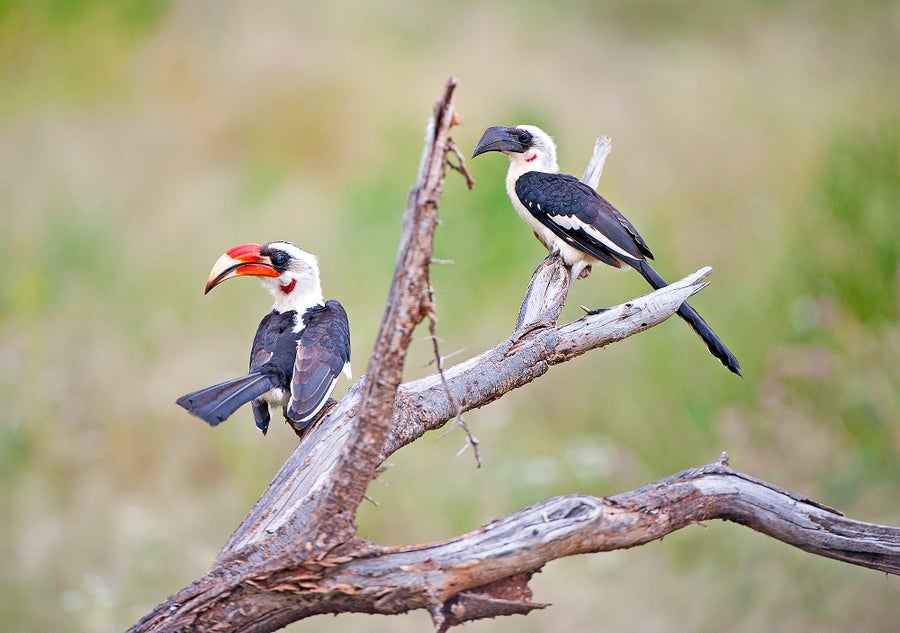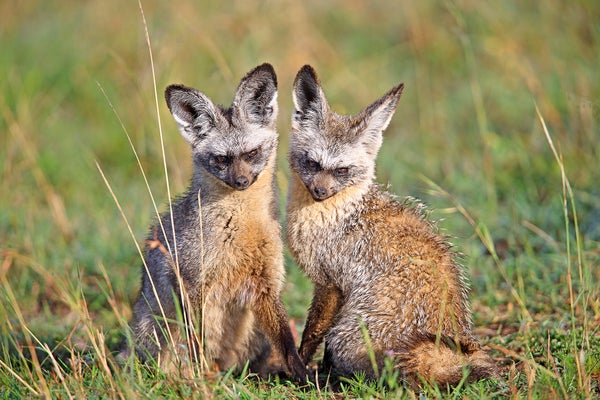February 14, 2024
4 min read
From jackals to hornbills, many grassland animals form a deep bond with their partner
A male and female bat-eared fox pair in the wild habitat of Masai Mara, Kenya.
The Lion King got one thing right: love is in the air on the savanna. From the birds perched in the trees to the foxes curled in their den, plenty of these grassland creatures are monogamous and mate for life, emulating characteristics of what humans might call love.
Some of these species are strictly monogamous and don’t breed outside of a pair—a relatively rare behavior that scientists call genetic monogamy. More common is social monogamy, in which mated pairs prefer each other’s company but might still partake in sexual relations with others. Even with these dalliances, socially monogamous pairs share deep, lasting connections, explains Karen Bales, who researches social bonding among animals at the University of California, Davis. Pair bonding isn’t “a social system or a mating system;” it’s a psychological connection, she says.
A committed, long-lasting partnership can help animals survive, explains Lisa Hiura, who studies developmental biology at the University of Colorado Boulder. In the savanna predators are plentiful, water is scarce and food can be hard to find. These species have evolved to thrive in these conditions—with a little help from their partner.
On supporting science journalism
If you’re enjoying this article, consider supporting our award-winning journalism by subscribing. By purchasing a subscription you are helping to ensure the future of impactful stories about the discoveries and ideas shaping our world today.

Von der Decken’s Hornbill
Birds are overwhelmingly monogamous creatures: 90 percent of species form monogamous bonds (compared with less than 10 percent of mammal species). Von der Decken’s…
Read the full article here







